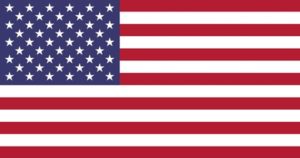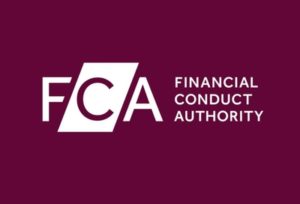Financial regulators in the United Kingdom have seized a total of $2.57 million (£2 million) from QPay Europe, a digital payments processor. According to the Financial Conduct Authority (FCA), the funds were claimed after it was discovered that they were proceeds of a US bank fraud equating to $150 million, which has been linked with illegal online gambling activity, as well as other transactions deemed to be of a “high risk”.
The FCA has clearly noted that it is not accusing QPay Europe of being involved in the conspiracy in any direct way. That being said, it did state that it has observed the company moving money “repeatedly to different bank accounts in several countries”, and this was what raised the red flag. The transactions taking place did not appear to be related in any way to any legitimate businesses, and this was what led to the seizure of the funds.
An investigation into the money saw QPay receiving it from a software firm going by the name of Fintech International Q Software WLL. This was labelled as an investment, according to the press release from the FCA. The money involved was initially frozen in urgent proceedings that were brought about by the financial regulator back in October and December of 2020. QPay applied to be regulated by the FCA in 2020, and upon doing so, the agency took notice of the suspicious flows of money through the firm. Since that time, QPay has withdrawn its application for regulation by the FCA.
Conspiracy in the United States
 It was in August of 2021 that four citizens of the United States of America were arrested and charged in the District of Massachusetts. It was said that the four were involved in a scheme to deceive banks and credit card companies into accepting and processing $150 million in illegal payments. Some of those payments included unregulated online gambling transactions, as well as high-risk payments to debt collection, debut reduction, payday lending merchants and prescription drugs.
It was in August of 2021 that four citizens of the United States of America were arrested and charged in the District of Massachusetts. It was said that the four were involved in a scheme to deceive banks and credit card companies into accepting and processing $150 million in illegal payments. Some of those payments included unregulated online gambling transactions, as well as high-risk payments to debt collection, debut reduction, payday lending merchants and prescription drugs.
Three of the four people were arrested on August 26 of last year, with the fourth being a fugitive on separate federal charges. The court documents named Ahmad “Andy” Khawaja, Thomas Wells, Mohammad “Moe” Diab and Amy Ringler Rountree as the guilty parties. Khawaja is the fugitive from a 2019 federal indictment filed in the District of Colombia, which charges him, Diab and several others with finance violations and the obstruction of justice.
The four suspects set up a company entitled Allied Wallet Inc, which was based in Los Angeles. Through this, they became involved in a practice known as transition-laundering. That allows for digital payments to be made to illegal or high-risk merchants by disguising them as 100% legitimate transactions. Three of the four people mentioned, excluding Khawaja, were executives for the Allied Wallet company.
Khawaja is Arrested in Europe One Year Prior
 Founder and CEO of Allied Wallet, Khawaja was previously arrested in Lithuania in September of 2020. This international arrest warrant resulted in U.S. officials requesting for him to be detained in custody while extradition hearings took place. It is unknown what became of those proceedings.
Founder and CEO of Allied Wallet, Khawaja was previously arrested in Lithuania in September of 2020. This international arrest warrant resulted in U.S. officials requesting for him to be detained in custody while extradition hearings took place. It is unknown what became of those proceedings.
The Allied Wallets firm would go on to defraud several financial institutions and credit companies through its decision to induce them into providing payment processing services to merchants without any legitimacy. The four guilty parties, through their company, knowingly misrepresented the transactions that they instigated in terms of both the money being processed and the true identities of the merchants receiving such.
Small shell companies were created by Allied Wallets, with fake websites being set up that suggested they sold low-risk retail and home goods. In the process, codes that are quite common and standard in the industry, were utilised, which then miscategorised the actual nature of the transactions taking place.
Khawaja donated at least $6 million in funds to both the Republican and Democratic political campaigns from 2015 onwards, according to an investigation that occurred in 2018. He held a fundraiser for Hillary Clinton’s 2016 presidential campaign, which she lost, and then he went on to court Republicans. At a fundraiser, he met with Donald Trump just a few weeks after he had secured his spot as the U.S. president and donated a total of $1 million to his inauguration campaign, according to the Associated Press.
The FCA Claims the Money of Criminal Activity
 The FCA stepped into the mix towards the end of 2020, after QPay had applied to be regulated in March of the same year. Upon its investigations being completed, it secured itself a £2,000,000 account forfeiture order, meaning that the sums totalling that amount which were held by QPay are instead paid to the UK government. That order was given consent by District Judge Cieciora of Westminster Magistrates’ Court.
The FCA stepped into the mix towards the end of 2020, after QPay had applied to be regulated in March of the same year. Upon its investigations being completed, it secured itself a £2,000,000 account forfeiture order, meaning that the sums totalling that amount which were held by QPay are instead paid to the UK government. That order was given consent by District Judge Cieciora of Westminster Magistrates’ Court.
“The funds will now be used to assist the FCA and other authorities fight illegal activity”,
said Mark Steward, Executive Director of Enforcement and Market Oversight at the finance regulator.
“The FCA will continue to vet applications for authorisation to ensure firms meet our standards of integrity as well as competence”.
In total seven account freezing orders were acquired by the FCA in respect of the money. The application for the money associated with such to be made forfeit was acquired in October of 2021. QPay, which has been offering due diligence and underwriting services since it began operating, agreed to forfeit the money upon the order being obtained by the FCA. It currently bases itself out of Wimborne, Dorset.

